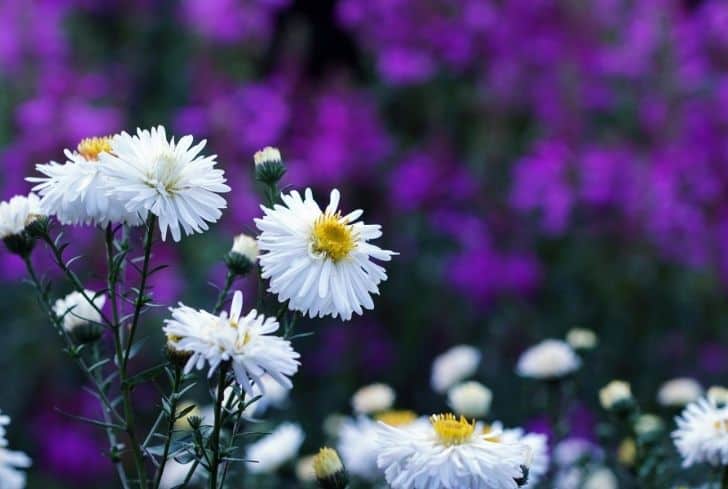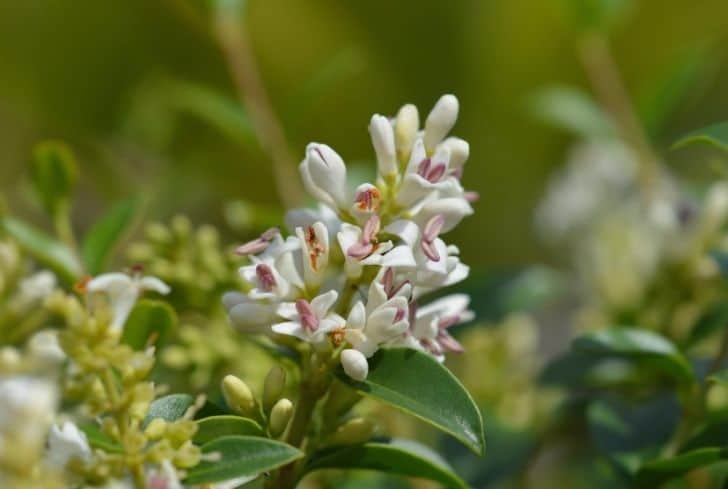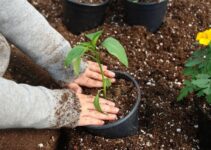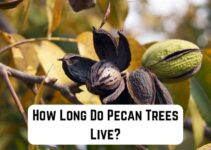Most gardening enthusiasts are aware of the different types of lights and the kind of impact they have on plants. All of these lights exude a specific range of wavelengths that are instrumental in the growth of plants. For instance, you’ll find red wavelengths that primarily aid in flowering; blue wavelengths that are best for growing vegetables; and practically a huge rainbow of wavelengths that boost the photosynthesis process in your plants.
Among all of these wavelengths, there is one specific wavelength that always invites a degree of deliberation. For the uninitiated, we are talking about ultraviolet lights. While some cultivars claim that they haven’t noticed any major change in their plants when under the influence of UV lights, others believe that these lights can perfectly bring out the natural flavor and fragrance of plants.
So, do plants need UV lights at all? Well, ultraviolet light might be beneficial for your plant’s overall development: but that’s only true when you understand how exactly to use these lights. So, in this article, we have tried to clarify all your burning queries about UV light while also shedding some light on the UV technology in detail.
Is UV Bad For Plants?
When used in the correct amount, UV light is certainly useful to plants. However, this only holds true when you use the correct amount of light and the correct kind of light. Certain types of UV light like tanning lamps for instance are potentially dangerous to your plants and may even end up yielding negative results. So, even before anything else you need to invest in a type of UV light that is safe to be kept around your plants.
Ideally, you should avoid using UV-C light as it is extremely dangerous to plants. Since UV-C light is entirely absorbed by the outer layers of the earth even before it reaches the surface, it is not a natural form of UV light and is therefore deemed detrimental. Even the tiniest amount of UV-C light can damage the DNA of your plant and it should be therefore duly avoided.
While deliberating about UV light and its impact on plants, you should also focus on the amount of light. In case the light is extremely intense or is positioned in proximity to your plants, it might end up harming them. The worst impact is bleaching which can almost ruin your plant.
Bleaching usually happens when a plant’s cell receives excessive amounts of light. In instances like these, they end up becoming either damaged or fully discolored. Overexposure can make this worse, finally resulting in your plant’s early demise.
Very often, bleaching hinders leaves from absorbing the light. Over time, this stunts the plants’ growth and impacts the quality and the quantity of yield. Overexposure to UV light might also damage the flavonoids thereby affecting the quality of the harvest. So, regardless of the light you choose, make sure it is only exposed in limited quantities.
What Type of UV Light do Plants Need?
Both UV-A and UV-B are known to be beneficial for plants and you can use either or both these lights in your garden area. UV-B light, for instance, is best known for altering the DNA of the fungi that are known to potentially attack or hurt plants. When the DNA is finally altered, the fungus can no longer spread, and the plant is duly protected. Exposure to this light also improves the texture and color of the plant and boosts the nutrient level in fruits.
With that said, you should still avoid extensive exposure to UV-B light since it can also affect the plants’ DNA that further turns out to be problematic. Assess the instructions of the grow light’s box to further ensure that the light isn’t kept on for a longer time. For the uninitiated, the earth receives less than 2% of the UV-B light naturally.
Unlike UV-B Light which has minor side-effects, UV-A Light is excellent without any cons. If you introduce your plants to this light during the growth cycle, it will lead to strong and more beautiful plants that are susceptible to fungus and every other form of pest-related attack. In some instances, it is also known to improve the appearance and taste of fruits and veggies. UV-A light is naturally present on earth and we are known to receive around 98% of this light.
When exposed to the right kind and amount of UV light, plants are known to produce a chemical known as a glycoside. This further makes way for better plant growth and the crops and vegetables produced also tend to taste better. The best part: this inherent chemical or glycoside is also known for keeping insects at bay. This way your crops are both delicious and healthy simultaneously/
While introducing or exposing plants to UV lights we should also consider the case of trichomes. Usually, plants have trichomes that cover their exposed surfaces. They appear like small hairs and are known to reflect away UV-C and trace amounts of UV-B. However, even then, you should regulate the amount and type of UV light that your plant is exposed to.
Do Plants Grow Better Under UV Light?
When used in controlled amounts, plants tend to grow significantly better under UV-A and UV-B lights.
Some of the many benefits of UV light on plant growth are listed below:
1. Quicker Photosynthesis
UV-A light is known to boost the photosynthesis process in the plant. Over time, it leads to better and faster plant growth. This is further backed by studies that claim exposure to UV-A light increases the photosynthesis in plants by a whopping 12%. Experts have further added that UV-A exposure boosts the leaf size, growth levels, and overall dry weight.
So, if you are expecting higher yields from your plants, we would certainly recommend a complete spectrum of light that includes both UV-A and UV-B.
2. Higher Production of Resins
Another defining quality of UV lights lies in the fact that they boost the production of resin in plants. This further enhances the content and quality of flavonoids and terpenes in your crops. For the initiated, Flavonoids are known for rendering a rich and vibrant shade to the plant, while terpenes contribute to their smell and taste.
When hit by an intense UV wavelength, your plant will naturally respond by developing a unique substance known as the resin. This is a protective element that prevents plants from losing excess water. It is also known to protect them from infection, pests, and many other factors that tend to put their health at risk.
3. Better Tasting Food
If you grow your own food at home, you will probably expect it to taste fresh. Luckily, with the right UV light in place- this can be an easy reality. Post secretion, resins bring up beautiful flavonoids and terpenes which collectively make way for rich and better-tasting yield. So, if a rich flavor is what you seek, UV light exposure is certainly an excellent option.
4. Protection from Pest
As you probably know at this point, UV light production boosts resin production which in turn protects your plants for pesky pests and ailments. And if your plant isn’t being nibbled by the pests or they aren’t trying to naturally heal their health from a foreign ailment, they are certainly on the path of achieving yielding healthy harvests.
5. Enhanced Root Development
Yes, UV light is also known to contribute to your plant’s root development. This light can reach the roots of the plants and owing to its limited exposure, the root mass of your plant will significantly increase. This is especially useful when you are looking to move the plants in a relatively intense light (for instance from indoors to the outdoors and vice versa).
When exposed to the right amount of UV light your plant won’t require any additional supplements even when you are planting it in a foreign setting. They thrive better and the roots are observed to be healthier.
How Does UV Light Affect Plant Growth?
As previously mentioned, UV-A and UV-B light produce a form of resin that makes way for the development of your plants’ roots. Since the roots are duly developed, the plants turn out to be healthier and fresher.
Since UV light also boosts the process of photosynthesis, the overall development of your plant is likely to be faster when exposed to the right amount of this light.
However, as every kind of plant does not produce resin, it is vital to check whether your plant will indeed benefit from the same. Besides, you should also check the position, structure, intensity, and height of the UV light around your plants to ensure that it safely secretes resin.
Well, now that you are at the end of this article, you probably understand that UV light will not stunt your plant’s growth or affect it negatively in any way. However, for that to happen, you need to follow our guidelines and choose the right type of light for your plant. Once you take this small step, you will be a step closer to growing your plants safely and healthily.







